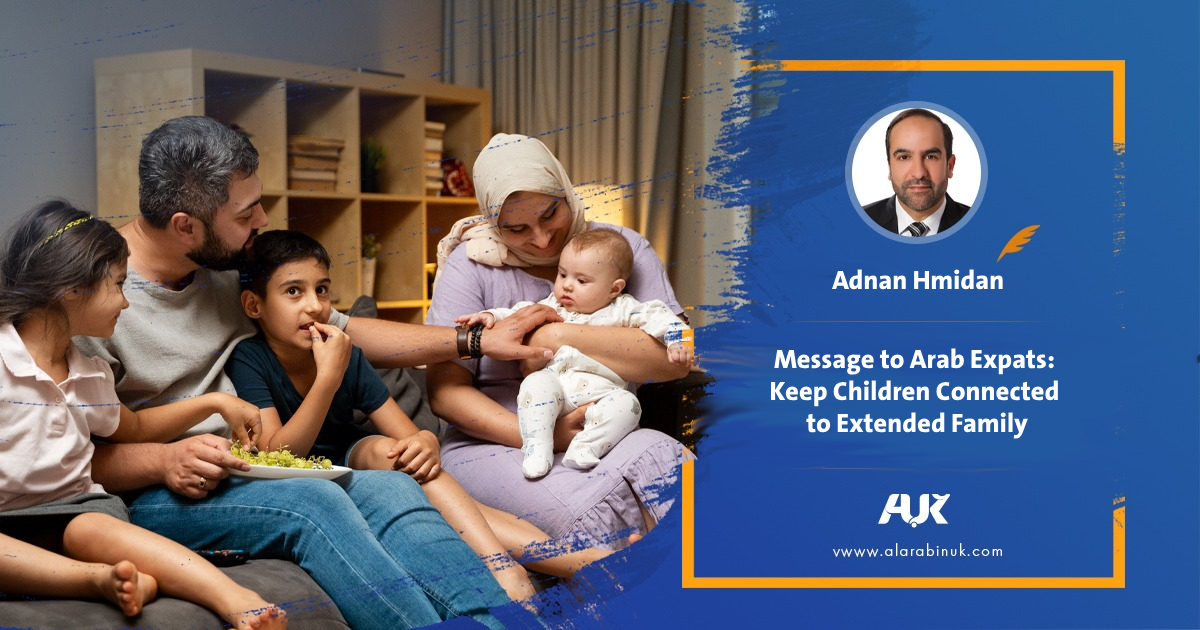Message to Arab and Muslim Expats: Keep Children Connected to Extended Family

Spending just one month with their extended family in their homeland or any other location where relatives reunite can vastly counteract the isolation, identity loss, and disorientation that expat children often feel.
My advice to our expatriate community is to nurture these family ties as they are not only inherently beneficial (and a religious obligation) but also crucial for your children’s connection to their heritage, culture, and language. Such engagement will positively impact their religious and moral values and bring blessings associated with maintaining good familial relations.
The advantages of nurturing extended family connections often outweigh the potential negatives, which can sometimes be hard to avoid. It’s wise to be selective about deepening relationships with certain family members more than others, as not all relationships provide the same benefits.

With some relatives, minimal contact may suffice, while others could offer enriching companionship that we’d want for our children all day, every day, due to their positive influence. It’s crucial for our children to understand that every society has its pros and cons. The West has progressed by integrating the best of our practices while often exporting their least desirable aspects back to us. Many negative societal aspects should be acknowledged and reformed, and these issues often stem from economic, political, and social conditions that diverge from our core values—values that our ancestors embodied for centuries when our civilization led the world before enduring external adversities that affected all aspects of life, including our cultural values.
This year’s summer break highlighted a solidarity with Gaza that varied among Arab countries, promoting a culture of boycott and supporting Palestine even during public celebrations. It is vital to discuss these dynamics with our children to foster their understanding and commitment to our cause.

Continually reminding our children of these details as they age is paramount. Once they reach an age where advice becomes less impactful, we risk encountering a generation only nominally connected to their identity and religion, with traditional names potentially Westernized—from Mohammed becoming “Mo” to Jameel turning into “Jimmy.”
Raising children entails more than providing for their physical needs and education; it also involves deepening their bond with their religion and culture and fostering a sense of pride in their identity. This approach should not be about isolation or extremism but about cultivating a sense of purpose that showcases their heritage as a model for others to appreciate and embrace.
Read More:
ShortURL ⬇



